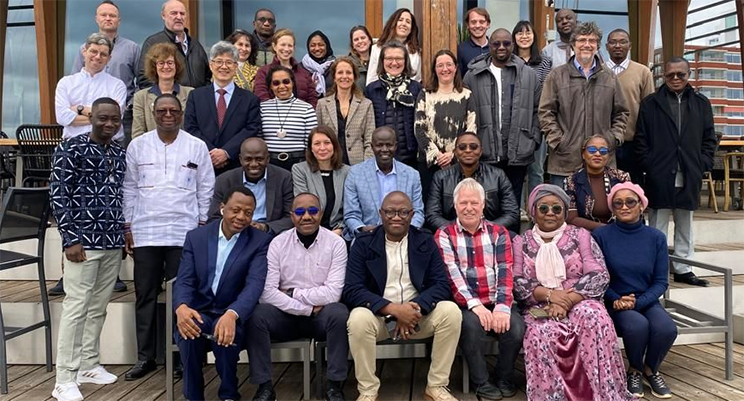PYRAPREG: Final project meeting and project achievements

The PYRAPREG project aimed to evaluate the safety and efficacy of Pyronaridine–Artesunate (PA, Pyramax®), a new artemisinin-based combination therapy, in treating uncomplicated malaria during the second and third trimesters of pregnancy across five African countries. The final investigators’ meeting of the PYRAPREG consortium took place from 26 to 28 March 2025 in Amsterdam, the Netherlands, gathering representatives from all consortium partners and key stakeholders, including National Malaria Control Programme representatives, Data Safety Monitoring Board members, ethics advisors, the manufacturer of Pyramax®, Shin Poong Pharmaceutical and EDCTP.
Malaria poses a severe risk to both mothers and infants, contributing significantly to maternal and neonatal morbidity and mortality. In Africa, it remains a leading cause of death among females of reproductive age. While several artemisinin-based combination therapies are approved for use during pregnancy, their efficacy, safety, and tolerability differ. The introduction of PA represents a potentially safer and effective alternative, necessitating thorough evaluation.
In this clinical trial, 1,875 pregnant women participated, with PA being compared against two commonly used therapies: dihydroartemisinin–piperaquine and artemether–lumefantrine. Preliminary findings indicate that PA is both safe and efficacious for treating malaria in pregnant women during the second and third trimesters. Additionally, the study also assessed the pharmacokinetics of pyronaridine during pregnancy and the impact of HIV co-infection. Interim results from the pharmacokinetics assays suggest there was no detectable interaction of PA with antiretroviral treatments in pregnant women living with HIV, further supporting PA’s suitability for use in this at-risk population.
The project included a robust capacity-building component, featuring hands-on training for four MSc students and the completion of PhD trajectories for two candidates. Both PhD candidates successfully obtained their doctoral degrees from the University of Amsterdam, scheduled for the last day of the consortium’s meeting.
